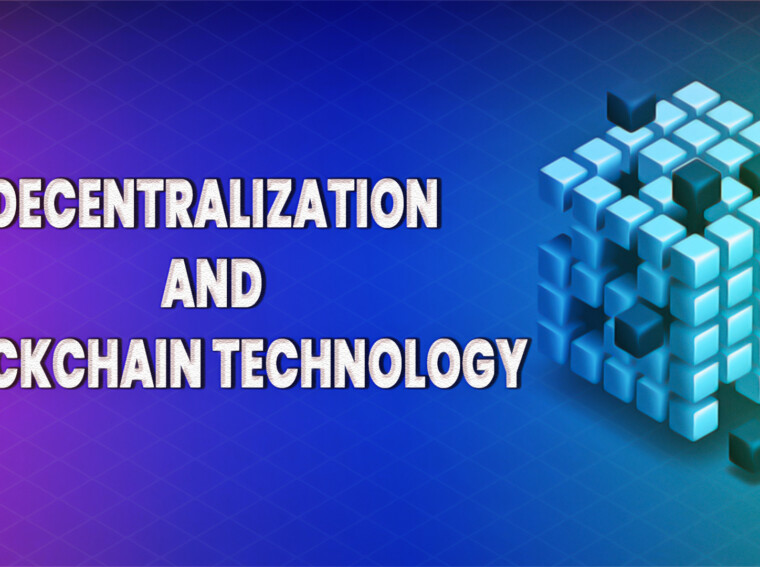- The article examines the changing environment of streaming content, including music, movies, television and video games, as well as how blockchain technology is expected to transform the market.
- It emphasizes how prevalent video content is online and how blockchain technology may be able to provide decentralized solutions that give both content producers and viewers more control.
The streaming revolution has caused a significant change in the way one consumes material. With the advent of streaming technologies, one can now easily access music, movies, television, and video games. But this transition is far from over and brand-new developments, especially in the areas of decentralization and blockchain technology, are ready to drastically alter the scene.
The Development Of Decentralized Streaming Platforms For Music And Video
The voyage of the streaming revolution began with music, upending the established music business and providing consumers with a practical and authorized substitute for piracy. Users now have fast access to a sizable song catalog thanks to websites like Spotify and YouTube, ushering in a time when owning actual CDs of music is no longer necessary. The popularity of on-demand music among customers has stabilized the move toward digital streaming services.
Video games, television, and movies are now all going through their own streaming revolution. Undisputedly popular video content includes vlogs, podcasts, and live streaming, and big studios are establishing their own over-the-top (OTT) services in response. The rise of 5G networks and the rising popularity of esports will help video games become a dominant force in streaming.
The Video Age’s Growing Dominance
There is no denying that videos are widely used online. The popularity of high-definition video formats like 4K, 8K and 360° movies is what is driving this trend. A sizable portion of internet traffic is accounted for by Netflix, a pioneer in the streaming sector. With its extensive library of video material, YouTube is another important source of traffic for mobile devices worldwide.
Gaming-related bandwidth demand is increasing, and the sector is catching up swiftly. Video streaming will therefore likely continue to dominate internet traffic in the years to come.
Blockchain’s Potential For Streaming
Blockchain technology has the potential to revolutionize the streaming business. It provides a distributed and unreliable network that gives customers, content producers, and infrastructure suppliers equal influence. Blockchain-based streaming networks are very resistant to interference, in contrast to centralized systems that may be prone to censorship and control.
Principal Advantages Of Blockchain In Streaming
- Smart Contracts
Without the need for middlemen, content producers may get money directly from fans. License and contract-related concerns are automatically taken care of by smart contracts.
- Distribution of Decentralized Content
Blockchain enables direct, secure transactions without middlemen, assuring efficiency and transparency.
- Ownership and Accessibility
By encrypting movies and storing them via decentralized protocols, blockchain addresses the problems of ownership and access. This guarantees that information may be accessed from any location using the proper decryption keys.
- Targeted Marketing and Advertising Analytics
Blockchain improves digital advertising by providing effective tracking and measuring tools that allow for more focused marketing initiatives.
- Simple Transactions and Micropayments
Blockchain enables cost-free, frictionless micropayments between consumers and content producers, opening up the possibility of monetization.
- Blockchain-Based Content Delivery Network (CDN)
By using spare storage space from users all over the world, a blockchain-based CDN may build a decentralized cloud storage and data delivery network.
- Content Licensing and Monetization
Blockchain gives content producers more control over their IP rights. Immutable records safeguard content ownership and streamline payments.
Blockchain technology has the potential to lead to even more substantial changes in business as the streaming revolution unfolds. It gives people more control and establishes a decentralized environment that is advantageous to both consumers and content producers. With the introduction of blockchain, a new age in multimedia streaming has begun that emphasizes efficiency, security, and transparency.
Conclusion
The streaming revolution-which started with music-is advancing quickly. Movies, television shows, and video games all fall under the category of video content, which now dominates internet usage. Blockchain technology is emerging as a possible disruptor in the evolving streaming market, providing answers to long-standing problems and revolutionizing the production, distribution, and monetization of content. A new era of digital entertainment is about to begin as content streaming evolves to become more decentralized, open, and inclusive.

